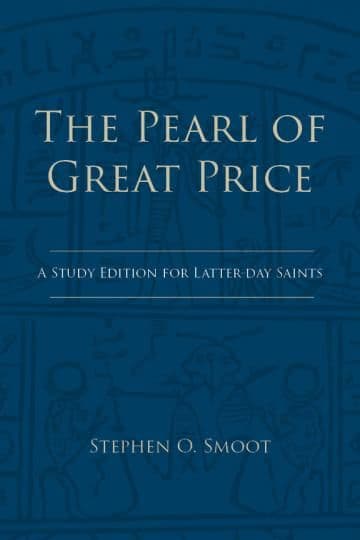Book
43 Chapters

5 The concluding chapter of the book of Abraham ends abruptly with Adam giving names to the animals in the garden. In an unpublished editorial dated March 1, 1842, Joseph Smith signaled his intention to “contin[u]e to translate & publish [the rest of the book of Abraham] as fast as possible till the whole is completed.” Eleven months later, John Taylor, acting as editor of the T&S, published a notice in the paper that the Prophet “promise[d] . . . to furnish us with further extracts from the Book of Abraham.” Joseph’s death on June 27, 1844, put an end to the translation and publication of any additional material from the book of Abraham.
5:1 The chapter begins with a direct quotation from the gods without the customary quotation formula (“And the Gods said . . .”) that is found throughout the previous chapter. This oddity might be explained as either a scribal error in the transmission of the book of Abraham or a typographical error on the part of the printers of the T&S. There is no extant manuscript for any text beyond 3:26, however, so this hypothesis is impossible to prove.
5:2–3 Once again the verb “counsel” is used to indicate the deliberateness behind the gods’ activity. The “time that they counseled among themselves to form the heavens and the earth” appears to refer to the council scene in 3:24–26, thereby reinforcing the narrative continuity of the text and making the presence of the divine council in this text unambiguous.
5:4 As with Genesis 2:4 and Moses 3:4, this verse marks the commencement of a second Creation account. See the commentary at Moses 3:4.
5:7 Another gloss explains that the human’s spirit as well as the breath of life (compare Genesis 2:7; Moses 3:7) is what constitutes a living soul (compare Doctrine and Covenants 88:15). The detail of the human’s spirit being a component to a living soul is missing from the Genesis and Moses accounts.
5:10 The text is missing the names of the four branches of the river that flows out of Eden: the Pishon, the Gihon, the Tigris, and the Euphrates (see the commentary at Moses 3:11). The omission is likely deliberate, but the reason for such is not clear.
5:11 Adam’s responsibility to dress and keep the garden parallels humanity’s dominion over the animals. Both cases include an implicit sense of responsibility to preserve and protect Creation.
5:13 Here the gloss is clearly coming from Abraham and explains that Adam was not yet aware of the fact that the gods had appointed celestial objects to be used for keeping time. As such, the only point of temporal reckoning available to Adam was Kolob (having just come down from the premortal council adjacent thereto). As explained at Abraham 3:4, “one revolution [of Kolob] was a day unto the Lord” and was equivalent to one thousand years on earth.
5:14 On the woman as a help meet for Adam, see the commentary at Moses 3:18.
5:20–21 In the biblical account, Adam names the animals at Genesis 2:19–20 before he is put to sleep and has one of his ribs removed to create the woman. As told in Genesis 2, the reason the woman was created was because none of the animals named by Adam were found to be suitable partners, hence reinforcing the ontological distinction between human and beast. Here the text significantly rearranges the order of events, placing the naming of the animals after the creation of the woman. The logic here seems to be that the creation of woman was not some afterthought or accident but took preeminence. The text does not hint that the woman was only created after the other animals were seen as incompatible partners for Adam, as it is in the biblical account. The sudden end of the narrative is unfortunate since the last sentence seems to be gearing up to provide important details about the relationship between Adam, Eve, and the animals. Adam names the angels. In the Quran (2:30–33), Adam does not name the animals but is asked to name God’s angels as a test of his piety and knowledge of the secrets of heaven.
Book
43 Chapters
Items in the BMC Archive are made publicly available for non-commercial, private use. Inclusion within the BMC Archive does not imply endorsement. Items do not represent the official views of The Church of Jesus Christ of Latter-day Saints or of Book of Mormon Central.